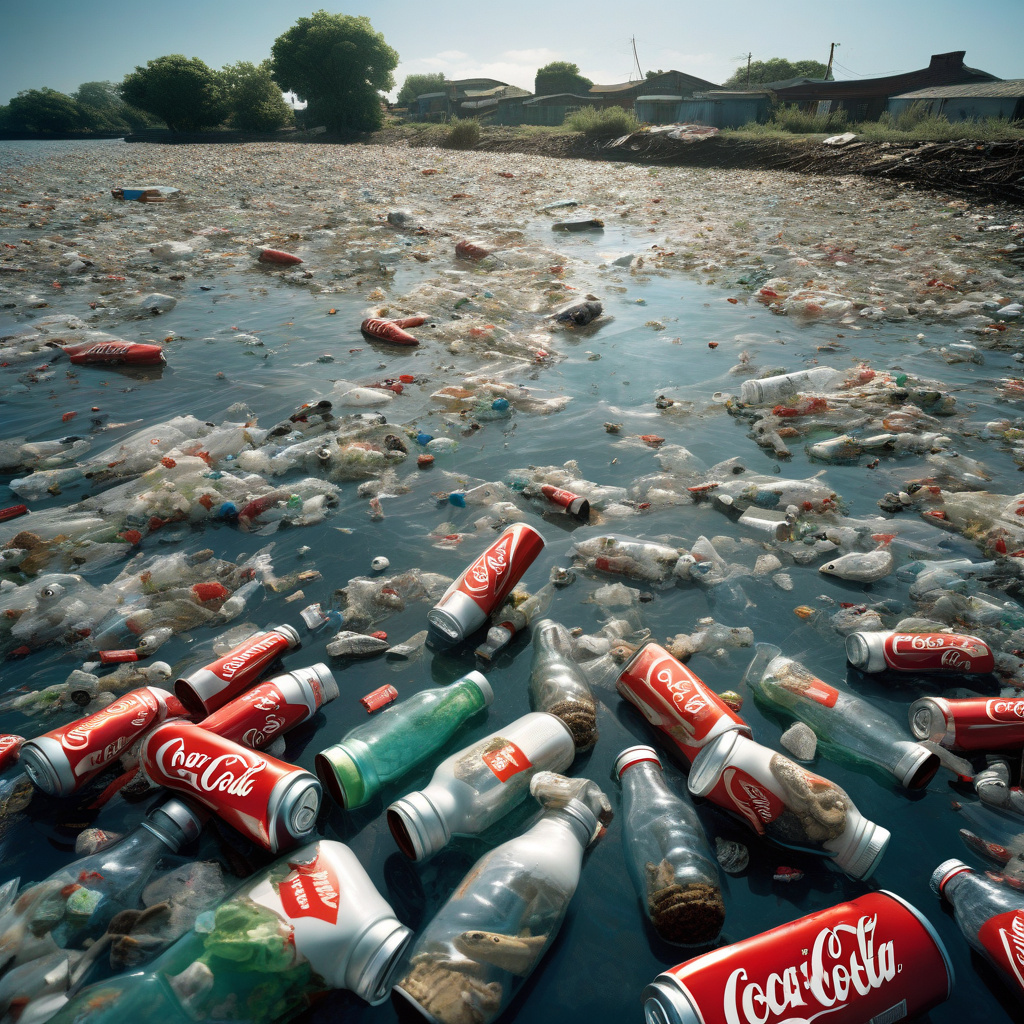602,000 Metric Tons of Coca-Cola Plastic Packaging Could Enter World’s Waterways by 2030
A new report released by Oceana warns that Coca-Cola’s annual plastic use may exceed 9.1 million metric tons by 2030. This staggering amount of plastic could have dire consequences for the environment, particularly our oceans and waterways. The report highlights the urgent need for companies like Coca-Cola to take responsibility for their plastic waste and implement sustainable practices to mitigate the environmental impact.
Plastic pollution is a global crisis that continues to escalate, with devastating effects on marine life, ecosystems, and human health. Coca-Cola, as one of the world’s largest plastic waste producers, has a significant role to play in addressing this issue. The company must prioritize reducing its plastic footprint, increasing recycling efforts, and investing in innovative solutions to prevent plastic pollution.
One of the major concerns raised by the report is the potential for 602,000 metric tons of Coca-Cola plastic packaging to enter the world’s waterways by 2030. This alarming statistic underscores the need for urgent action to prevent further damage to our oceans. Plastic waste poses a serious threat to marine animals, many of which mistake plastic for food and end up ingesting it. This not only harms the animals directly but also has ripple effects throughout the marine ecosystem.
To combat this looming crisis, Coca-Cola must reevaluate its production and packaging strategies to prioritize sustainability. This includes exploring alternative packaging materials, such as biodegradable plastics or reusable containers, and investing in recycling infrastructure to ensure that plastic waste is properly managed. Additionally, Coca-Cola should work towards increasing public awareness about plastic pollution and the importance of recycling.
Several companies have already taken steps to reduce their plastic footprint and implement more sustainable practices. By following their lead, Coca-Cola can demonstrate its commitment to environmental stewardship and set a positive example for other corporations to follow. Sustainability is not just a buzzword but a crucial aspect of corporate responsibility in the 21st century.
In conclusion, the report by Oceana serves as a stark reminder of the urgent need to address plastic pollution and its impact on our planet. With 602,000 metric tons of Coca-Cola plastic packaging at risk of entering waterways by 2030, the time to act is now. Coca-Cola has the opportunity to lead the way in implementing sustainable solutions that will protect our oceans and future generations. The choice is clear: either continue down the path of environmental destruction or take meaningful steps towards a cleaner, healthier planet.
#CocaCola, #PlasticPollution, #Sustainability, #EnvironmentalImpact, #OceanConservation











